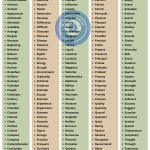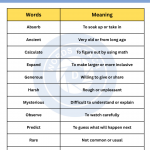Conditional Example Sentences
Conditional sentences are used to express the relationship between two events or conditions. They are typically made up of two clauses: the if-clause and the main clause. The if-clause states the condition, and the main clause states the result.
There are four main types of conditional sentences:
- First conditional: This type of conditional sentence is used to express a possible result in the future. The if-clause is in the present tense, and the main clause is in the future tense. For example:
If I study hard, I will pass the exam.
- Second conditional: This type of conditional sentence is used to express a hypothetical result in the present. The if-clause is in the past tense, and the main clause is in the conditional tense. For example:
If I had studied harder, I would have passed the exam.
- Third conditional: This type of conditional sentence is used to express a hypothetical result in the past. The if-clause is in the pluperfect tense, and the main clause is in the conditional tense. For example:
If I had studied harder, I would have passed the exam last year.
- Mixed conditional: This type of conditional sentence is used to express a hypothetical result in the past or future, but the speaker is not sure if the condition will be met. The if-clause is in one tense, and the main clause is in another tense. For example:
If I had studied harder, I might have passed the exam.
Here are 50+ conditional sentences with if clauses of different types (0, 1, 2, and 3):
Zero Conditional (Facts):
- If you heat water to 100 degrees Celsius, it boils.
- If the sun sets, it gets dark.
- If you mix red and blue, you get purple.
- If you drop an object, it falls to the ground.
- If the temperature drops below freezing, water freezes.
- If the power goes out, the lights turn off.
- If you touch fire, it burns.
- If you don’t water plants, they die.
- If you add 2 and 2, you get 4.
- If you don’t eat, you get hungry.
First Conditional (Possible and Likely):
- If it rains tomorrow, I will stay home.
- If she studies hard, she will pass the exam.
- If you don’t hurry, you’ll miss the bus.
- If I see John, I will tell him you called.
- If he arrives early, we can catch the movie.
- If they invite us, we’ll attend the party.
- If the weather is nice, we’ll have a picnic.
- If you work late, you’ll finish the project.
- If you eat too much, you’ll feel sick.
- If you don’t stop texting, you’ll get in trouble.
Second Conditional (Unlikely or Hypothetical):
- If I won the lottery, I would buy a big house.
- If she were a bird, she would fly around the world.
- If I were you, I would take that job offer.
- If it snowed in July, it would be strange.
- If I had more time, I would travel more.
- If you studied harder, you would get better grades.
- If he asked her out, she might say yes.
- If I could, I would help you.
- If he were here, he would fix the car.
- If I knew the answer, I would tell you.
Third Conditional (Past Unreal Situations):
- If I had known, I would have come to the party.
- If they had studied, they would have passed the test.
- If I had seen the accident, I would have called for help.
- If she had followed the recipe, the cake would have been delicious.
- If we had arrived on time, we would have caught the train.
- If you had told me, I would have prepared dinner.
- If he had invested in that company, he would be rich now.
- If they had listened to the warning, they wouldn’t be lost.
- If I had won the competition, I would be famous.
- If she had kept the receipt, she could have returned the item.
Mixed Conditional (Mixing Time Frames):
- If you had known about the meeting, you would be here now.
- If I were in your shoes, I would have taken the opportunity.
- If he hadn’t skipped so many classes, he’d have better grades.
- If she had saved money, she would be on vacation right now.
- If I had the time, I’d help you move this weekend.
- If we’d left earlier, we’d have avoided the traffic.
- If they had arrived on time, we would be done by now.
- If you hadn’t forgotten the keys, we wouldn’t be locked out.
- If I were taller, I would have reached the top shelf.
- If she had worked harder, she might have earned a promotion.
Conditional sentences are a versatile and important part of the English language. By learning how to use conditional sentences correctly, you can improve your communication skills and express yourself more clearly.





